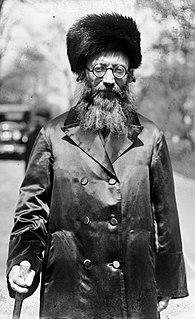A Quote by Samuel Johnson
All severity that does not tend to increase good, or prevent evil, is idle.
Related Quotes
When one has once accepted and absorbed Evil, it no longer demands the unfitness of the means. The ulterior motives with which youabsorb and assimilate Evil are not your own but those of Evil.... Evil is whatever distracts. Evil knows of the Good, but Good does not know of Evil. Knowledge of oneself is something only Evil has. One means that Evil has is the dialogue.... One cannot pay Evil in installments--and one always keeps on trying to.
Conservatives tend to see the world more in terms of good-versus-evil and, for some of them, the nightmare is a disarmed citizenry that can be preyed upon by criminals. They know that having a gun in the house would increase the risk of an accident for a member of their family, but they're willing to take that risk.
One may say that evil does not exist for subjective man at all, that there exist only different conceptions of good. Nobody ever does anything deliberately in the interests of evil, for the sake of evil. Everybody acts in the interests of good, as he understands it. But everybody understands it in a different way. Consequently men drown, slay, and kill one another in the interests of good.
I find afflictions to be good for me. I have always found them so. Afflictions are happy means in the hands of the Holy Spirit to subdue my corruptions, my pride, my evil passions, my inordinate love to the creature. Afflictions soften my hard heart, bring me to my knees, increase faith, increase love, increase humility, increase self-denial. Afflictions make me poor in spirit, and nothing in my own eyes.
In the story of the Creation we read: ". . . And behold, it was very good." But, in the passage where Moses reproves Israel, the verse says: "See, I have set before thee this day life and good, and death and evil." Where did the evil come from? Evil too is good. It is the lowest rung of perfect goodness. If you do good deeds, even evil will become good; but if you sin, evil will really become evil.
Evil denotes the lack of good. Not every absence of good is an evil, for absence may be taken either in a purely negative or in aprivative sense. Mere negation does not display the character of evil, otherwise nonexistents would be evil and moreover, a thing would be evil for not possessing the goodness of something else, which would mean that man is bad for not having the strength of a lion or the speed of a wild goat. But what is evil is privation; in this sense blindness means the privation of sight.





































